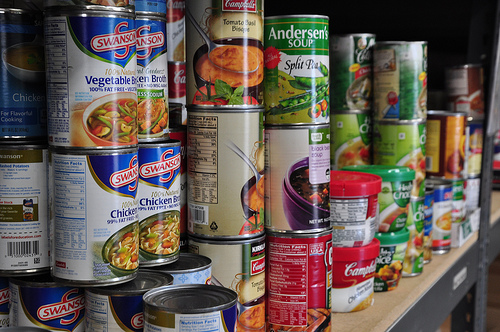Why does canned food taste so bad?

I cannot stand canned food. Probably because I ate so much of it as a kid. Canned food is cheap if you buy it on sale, it's quick to prep and it stores well in the cupboard. But oh, that canned food taste. It makes me shudder just to think about it.
I was interested to read this Slate article lauding the taste of "well-ripened" canned goods. Not because I have any interest in doing so (I'll leave that to those of you with less canned-food-related emotional baggage, thanks) but because it included a lot of scientific information on why canned food tastes so…canned.
The taste is known by food scientists as "retort off-flavor." It happens for two reasons.
The first factor is the high heat used to cook and preserve the food. In order to kill all heat-resistant bacteria, canned food receives a "punishing heat treatment," up to 250 degrees held for 10 minutes. This does bad things to a lot of foods, and is what causes most canned foods to become mushy and oddly-colored.
The second factor is the storage itself. Many foods contain minute amounts of unappetizing compounds like hydrogen sulfide, methyl sulfides and methanethiol. These compounds may smell "eggy or meaty or oniony or cabbagy or skunky." And when they are trapped in the can, they have nowhere to go. Ordinarily you probably wouldn't notice these compounds, because they are tucked away inside the cells of the food. But the cooking, combined with the slow break-down process that happens inside the can, releases them into the surrounding area, giving a strong flavor when you pop that can lid.
Blucch!
As an aside, many people (including the author) build up large stockpiles of canned goods for an imagined apocalypse. While it's good to have a week's worth of food stored on hand, most experts recommend that you go beyond just collecting cans and stockpile things like cooking oil, peanut butter, multivitamins, powdered milk, and more.
Image courtesy Flickr/Salvation Army USA West

3 comments